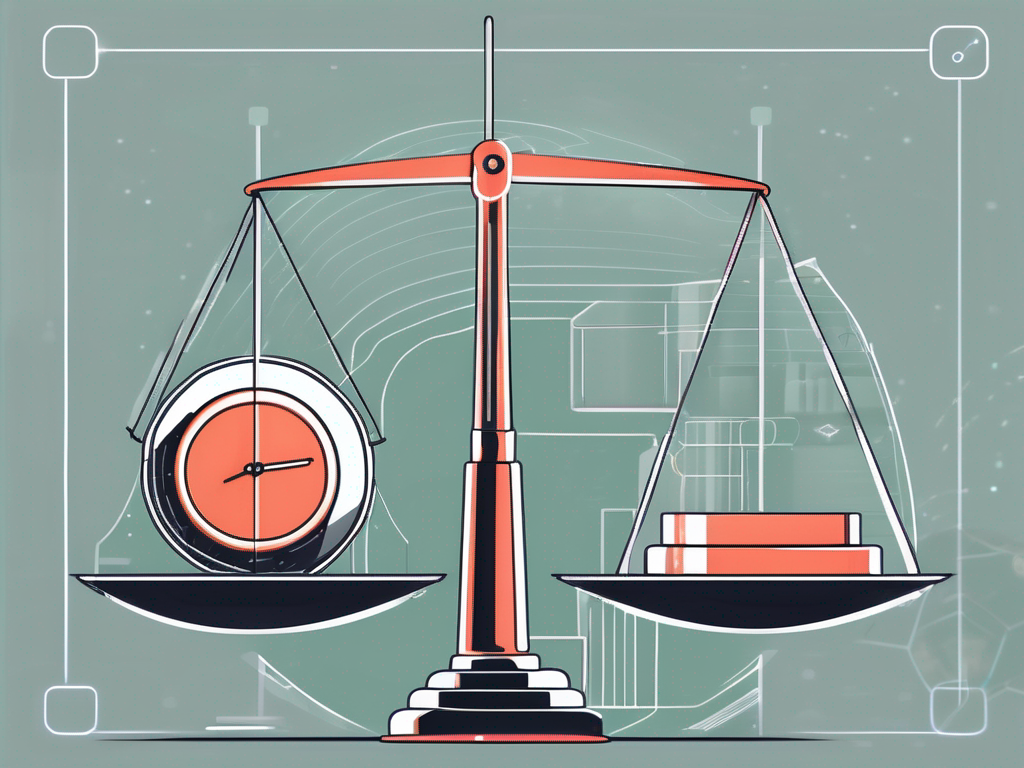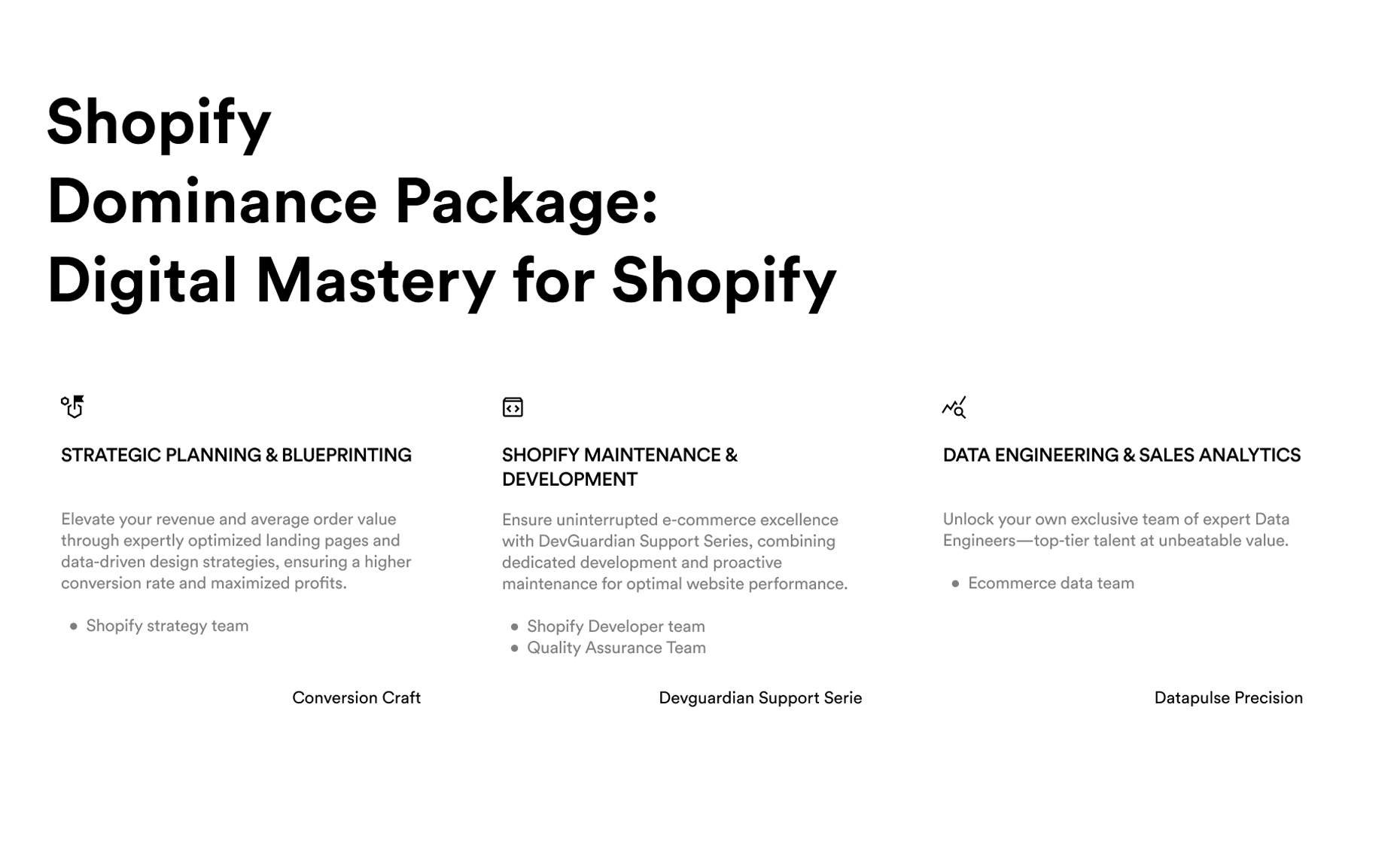
Learn how to navigate the complex landscape of Shopify and GDPR compliance in 2024 with our comprehensive guide.
Shopify and GDPR: Compliance Tips for 2024
The General Data Protection Regulation (GDPR) is a set of regulations that govern the collection and processing of personal data for individuals within the European Union (EU). If you own an online store on Shopify, it is essential to understand and comply with GDPR regulations to protect your customers' data and avoid potentially hefty fines. In this article, we will explore key tips and strategies to ensure GDPR compliance for your Shopify store in 2024.
Understanding GDPR Regulations for Shopify Store Owners
GDRP regulations are designed to give individuals more control over their personal data and establish guidelines for businesses that process this data. As a Shopify store owner, it is crucial to understand how GDPR affects your operations and what steps you need to take to comply.

When collecting and processing personal data, you must have a legal basis for doing so, such as obtaining explicit consent from individuals. It is essential to review and update your privacy policy to inform customers about the type of data you collect, why you collect it, and how you use it.
Additionally, GDPR requires you to implement appropriate technical and organizational measures to protect personal data, such as encryption, access controls, and regular security audits.
Furthermore, it is important to appoint a Data Protection Officer (DPO) if your core activities involve regular and systematic monitoring of individuals on a large scale or processing of sensitive personal data. The DPO serves as a point of contact between your business, data subjects, and supervisory authorities.
Moreover, GDPR mandates that you conduct Data Protection Impact Assessments (DPIAs) when introducing new technologies or processing operations that are likely to result in a high risk to individuals' rights and freedoms. DPIAs help you identify and mitigate data protection risks early in the process.
Key Changes in GDPR Compliance for 2024
GDPR is an evolving regulation, and it is crucial to stay updated with the latest changes and requirements. In 2024, there are several key changes in GDPR compliance that Shopify store owners need to be aware of.
One significant change is that businesses must be more transparent in their data processing activities. This means providing individuals with clearer information about how their data will be used and ensuring they can exercise their rights, such as the right to access, rectify, and erase their personal data.
Another important change is the introduction of stricter fines and penalties for non-compliance. The maximum fine for serious violations can reach up to €20 million or 4% of the company's total global turnover, whichever is higher. It is crucial to take GDPR compliance seriously to avoid these severe consequences.
Moreover, in 2024, GDPR compliance will also focus on the concept of data minimization. This principle requires organizations to limit the collection of personal data to only what is necessary for the specified purpose. By implementing data minimization practices, businesses can reduce the risk of data breaches and unauthorized access.
Additionally, GDPR compliance in 2024 will emphasize the importance of conducting regular data protection impact assessments (DPIAs). These assessments help organizations identify and mitigate risks to individuals' privacy rights. By performing DPIAs, businesses can proactively address potential data protection issues and demonstrate their commitment to GDPR compliance.
Data Protection Measures for Shopify Users
To ensure GDPR compliance, Shopify users can implement various data protection measures to safeguard their customers' personal data.
Firstly, implementing secure data storage and transmission is essential. You can encrypt personal data when storing it and use secure protocols when transmitting it over the internet. This helps prevent unauthorized access and ensures the confidentiality of sensitive information.
Regularly reviewing and updating your security measures is also crucial. Conduct security audits to identify vulnerabilities and address them promptly. This can include assessing your website for potential vulnerabilities, updating software and plugins regularly, and training your team on best practices for data protection.
Moreover, Shopify users can enhance data protection by implementing multi-factor authentication (MFA) for accessing their accounts. MFA adds an extra layer of security by requiring users to provide two or more verification factors before gaining access, such as a password, a fingerprint scan, or a unique code sent to their mobile device.
Another important measure is to establish clear data retention policies. Define how long you will retain customer data and regularly review and delete any information that is no longer necessary. This not only reduces the risk of data breaches but also ensures compliance with data protection regulations.
Implementing GDPR Requirements on Your Shopify Website
When it comes to implementing GDPR requirements on your Shopify website, there are several steps you can take to ensure compliance.
Start by reviewing and updating your privacy policy and terms of service. Clearly state what personal data you collect, why you collect it, and how you use it. Also, outline customers' rights under GDPR and explain how they can exercise these rights.
Consider implementing cookie consent banners on your website. This allows users to choose whether they want cookies to be set and provides them with control over their data. Additionally, ensure that your website's forms have explicit consent checkboxes for collecting personal data.
If you use third-party apps or integrations on your Shopify store, review their privacy policies and assess their GDPR compliance. Ensure that they have appropriate data protection measures in place and that they handle personal data according to GDPR regulations.
Privacy Policy Updates for Shopify Stores
Updating your privacy policy is crucial to comply with GDPR regulations. Your privacy policy should be transparent, informative, and easy to understand for your customers.
Include information about the types of personal data you collect, the purpose of the data processing, and how long you retain the data. Inform customers about their rights, such as the right to access, rectify, and erase their data, and provide them with contact information to exercise these rights.
It is also important to outline the security measures you have in place to protect customers' data and specify any third parties you share data with, along with the legal basis for doing so. Regularly review and update your privacy policy to reflect any changes in your data processing practices or legal requirements.
Conducting GDPR Audits for Your Shopify Business
Regularly conducting GDPR audits for your Shopify business is essential to ensure ongoing compliance and identify any areas that need improvement.
Start by reviewing your data processing activities and categorizing the data you collect. Assess whether you have a legal basis for processing each type of data and identify any unnecessary data you can delete or anonymize.
Review your data retention policies and ensure that you do not retain personal data for longer than necessary. Implement mechanisms to automatically delete data when it is no longer needed.
Furthermore, assess the security measures you have in place, such as access controls, encryption, and employee training. Identify any vulnerabilities or areas where you can enhance data protection.
Training Your Team on GDPR Best Practices
Ensuring your team is well-informed on GDPR best practices is crucial to maintaining compliance throughout your Shopify business.

Provide training sessions or materials that educate your team on the principles and requirements of GDPR. Explain how personal data should be handled, stored, and shared, and emphasize the importance of protecting customers' privacy rights.
Regularly review and update your team's training to keep them informed about any changes in GDPR regulations or compliance requirements. Encourage open communication and create a culture where your team feels comfortable asking questions or reporting any potential privacy concerns.
Addressing Customer Data Requests on Shopify
Under GDPR, individuals have the right to access, rectify, and erase their personal data. As a Shopify store owner, you must have processes in place to address these data requests promptly and effectively.
Create a procedure for handling data requests and clearly communicate it to your team. Ensure you have mechanisms in place to verify the identity of the individuals making the requests to avoid any unauthorized disclosure of personal information.
Streamline your data retrieval and deletion processes to ensure efficiency. Keep a record of the data requests you receive and document the actions you take to address them. This will help demonstrate your compliance in case of any inquiries or audits.
Navigating GDPR Fines and Penalties for Non-Compliance
GDPR violations can result in significant fines and penalties for non-compliant businesses. It is crucial to understand the potential consequences and take necessary steps to avoid them.
Be proactive in your compliance efforts and regularly assess your adherence to GDPR regulations. If you identify any areas of non-compliance, take immediate action to rectify the issues and update your processes accordingly.
If your business faces a potential data breach or other GDPR violation, report it to the relevant supervisory authority within the required timeframe. Cooperation and transparency can mitigate the severity of fines and penalties.
Future Trends in Data Privacy and Shopify Compliance
Data privacy regulations are evolving and becoming increasingly important for businesses worldwide. In the future, we can expect more stringent data protection measures and a focus on individuals' privacy rights.

Shopify is likely to continue enhancing its platform to support GDPR compliance and offer additional tools to assist store owners in meeting their regulatory obligations. Staying informed about emerging trends and updating your compliance strategies accordingly will be key to maintaining a successful and compliant Shopify business in the long term.
Ensuring GDPR compliance for your Shopify store is essential to protect your customers' data and maintain their trust. By understanding GDPR regulations and implementing the necessary measures, you can confidently navigate the ever-changing landscape of data privacy and build a secure and compliant online business.











